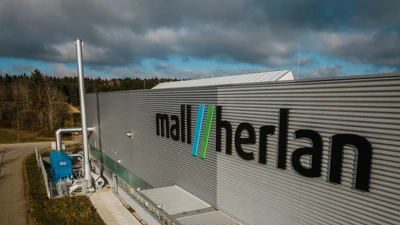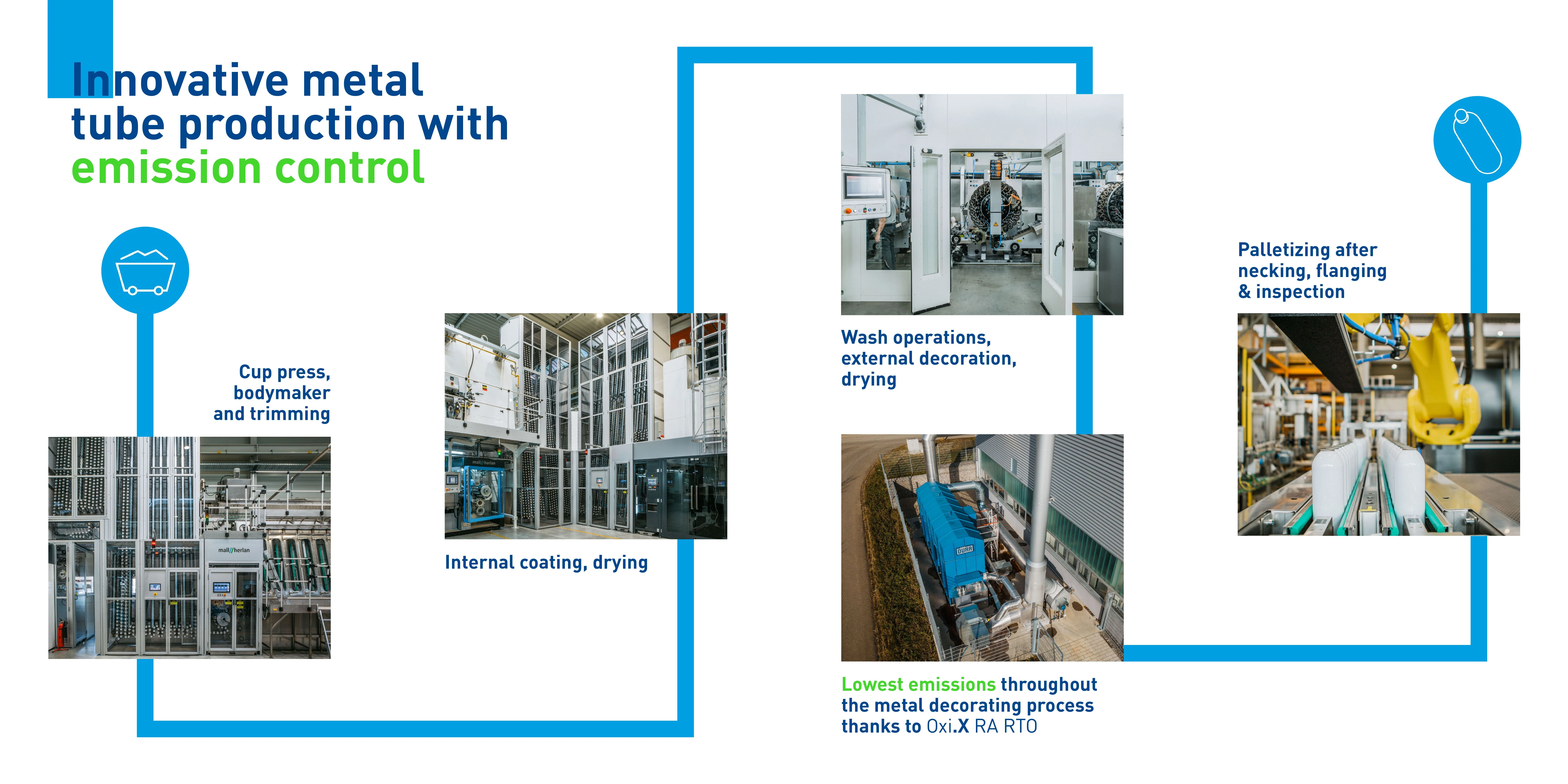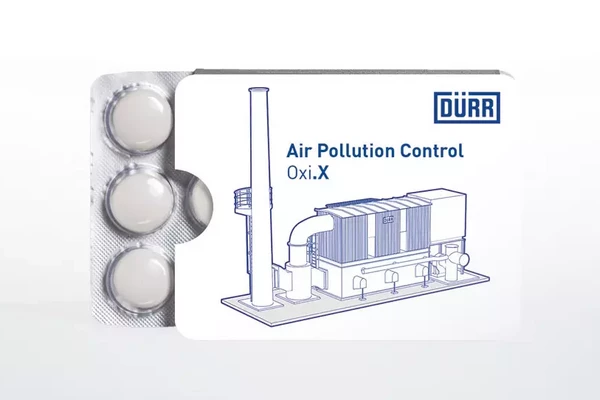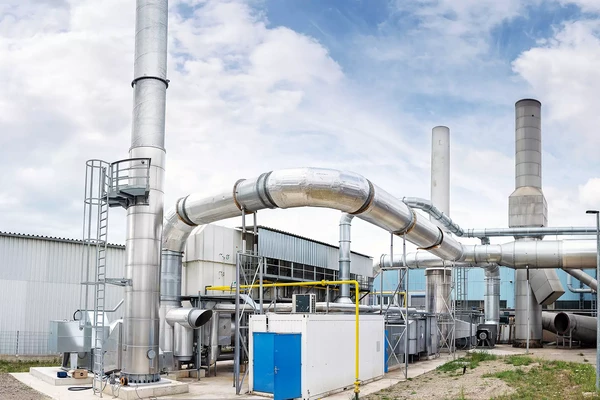
Keeping pollutants out of the can
Jun 3, 2022
Clean exhaust air in the manufacture of metal packaging
A wide range of products that we use in everyday life, whether deodorant, soft drinks, spray paint, or even oven cleaner, come in metal tins. But how many of us ever give a thought to how these packaging are manufactured? Mechanical engineering companies like Mall + Herlan play a big part in making sure that hygiene and cleaning products are safely packaged before they make their way into our homes. And how is clean air ensured during the manufacturing process? With environmental technology from Dürr.
Manufacturers of metal packaging for personal care, household, food, and pharmaceutical products around the world use systems from Mall + Herlan. The German mechanical engineering company, one of the international technological leaders in this segment, is now taking an unusual step. In order to demonstrate the benefits of a new and innovative manufacturing process to its customers, Mall + Herlan, together with its sister company xtracan, has suddenly made the switch to manufacturing metal packaging itself. “Our DWI production line (Draw and Wall Ironing, DWI) manufactures customized monoblock aerosol steel cans for our customers. In addition, we can show our customers a state-of-the-art air pollution control system precisely coordinated to the new manufacturing process. It removes all pollutants and odors along the entire process chain efficiently and in compliance with all environmental guidelines,” says Stefan Mairiedl, Managing Director of xtracan GmbH, describing what his company does. When Mall + Herlan was looking for a company to design and build an air pollution control system, what clinched it for Dürr was its many years of expertise in the purification of the organic pollutants produced during the painting and printing of sheet packaging (metal decorating).
VOCs escape along the entire line
The challenges involved in air pollution control for the innovative manufacturing process for monoblock aerosol steel cans are significant: Polluted exhaust air is emitted from almost 30 sources at temperatures that vary widely. In a three-stage process, the aerosol cans are painted or printed from the inside and outside. Unlike paper or plastic packaging, metal does not provide an absorbent substrate. The paint colors therefore contain up to 70 percent solvent. During the burning-in and drying process at temperatures of up to 300 degrees Celsius, the volatile organic compounds (VOCs) contained in the paints and varnishes are released. In addition to the three ovens, the three coating stations, tower storage, and various transport routes are relevant emission sources in aerosol can manufacturing.
Bake-out for reliable removal of deposits (self-cleaning)
As part of the manufacturing process, there is also a risk of the condensation of critical pollutants, giving rise to solids that can severely clog pipes and the air pollution control system. Dürr started by analyzing and separating the numerous sources in an air recording model. On average, the exhaust air temperature is 80 to 90 degrees Celsius. When the various exhaust air sources are mixed, the very hot air from the ovens is cooled down significantly. During this process, so-called “high boilers” in the air (i.e. organic compounds like resin with high boiling temperatures) condense. This can lead to critical deposits in the pipes and clogging of the ceramic heat exchanger bodies in the long run. “To purify the exhaust air effectively and, above all, economically, we recommended powerful regenerative thermal oxidation (RTO) with a thermal efficiency of up to 97 percent and purification rates approaching 100 percent,” explains Dietmar Decker, Senior Sales Manager Surface Treatment in Dürr’s Environmental Technology division. “With an oxidation temperature of up to 850 degrees Celsius, this process even eliminates odor emissions.”
For the implementation of the optimum air pollution control system, Dürr was able to draw on its extensive product portfolio with eight different RTO designs. “The reason we picked the Oxi.X RA system type with over 100 references in this special industry segment was the fully ceramic internal structure and the special bake-out process,” adds Dietmar Decker.

Heat exchanger as heat accumulator
The Oxi.X RA RTO from Mall + Herlan is rated for a maximum treatment capacity of 11,000 m³/h and pollution loads of 1 to 2 g/m3. In normal operation, which is equivalent to the range from 1.3 to 1.6 g/m3, the highly efficient heat exchanger reduces the operating costs to the absolute minimum through largely autothermal operation. What does this mean? The burner can be switched off completely, and no additional primary energy is needed to operate the air pollution control system. This is possible because the heat exchanger simultaneously acts as a heat accumulator by storing the excess energy in phases with high solvent concentrations. In subsequent phases with low pollutant concentrations, the excessive temperature level – i.e. the stored excess energy – is slowly lowered again and made available. This also saves natural gas. Dürr is increasingly employing this special principle of “thermal buffering” with fluctuating solvent concentrations to “smooth” the resulting fluctuating energy entries, making it an extremely interesting alternative to upstream concentration smoothers. This is a major plus because these adsorptive smoothers are not only extremely expensive, but also cannot be used in applications in which the exhaust gas temperatures are on the higher side and there is a risk of contamination.
Environmental protection meets economy
For Mall + Herlan, the Oxi.X RA RTO proved to be the best solution both economically and ecologically. Regenerative thermal oxidation is not only a pioneering and reliable way of ensuring that no official limit values are exceeded, but the high oxidation temperatures and the extremely high degrees of purification achieved as a result mean there is no need for the determination or complex verification of odor emissions in accordance with the new "Technical Instructions on Air Quality Control 2021". “The air pollution control system has been running smoothly and reliably for over three months. We’re very happy with everything — from the design to the technical support, assembly and startup — and are happy to show our customers our shopfloor and customized air pollution control system,” says Stefan Mairiedl in summary.



